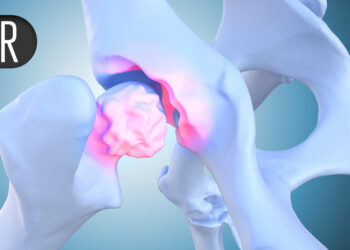TOPLINE:
Individuals who adopted a healthier lifestyle after their first screening colonoscopy had a lower risk for both colorectal cancer (CRC) and major chronic diseases.
METHODOLOGY:
- Previous research has shown that lifestyle modifications after polypectomy can lower the risk for CRC, but the effect of such changes following screening colonoscopy remains unclear.
- Researchers prospectively analyzed data from three large US cohort studies (two Nurses’ Health Study cohorts and one Health Professionals Follow-up Study) to assess the effect of lifestyle changes made after screening colonoscopy on the incidence of CRC and major chronic diseases.
- Participants (mean age post-screening, 63 years; 84% women) were asked biennially in a questionnaire whether they’d had a colonoscopy in the past 2 years and the reason for the procedure. Those who reported a diagnosis of CRC before screening were excluded.
- Researchers created a lifestyle score based on five modifiable risk factors for CRC: smoking, BMI, physical activity, alcohol intake, and diet. Each lifestyle criterion that was met was worth one point, resulting in a scale of 0-5, with a higher score reflecting a healthier lifestyle.
- Lifestyle was assessed before colonoscopy and after screening over time, and changes in lifestyle scores and factors were calculated.
TAKEAWAY:
- A total of 118,396 individuals were analyzed for the incidence of CRC and 88,558 for the incidence of chronic diseases, and 537 incident cases of CRC and 14,165 of major chronic diseases (including cancer, cardiovascular disease and type 2 diabetes) were documented over median follow-up of 10 and 9.6 years, respectively.
- A one-unit increase in the healthy lifestyle score post-screening was associated with a 14% lower risk for CRC (P = .002) and an 11% lower risk for major chronic diseases (P < .0001), with the strongest disease-specific association for type 2 diabetes (P < .0001).
- Participants whose lifestyle score fell two points or more vs those with no change in score had a higher risk for CRC (hazard ratio, 1.7), with a stronger association noted for distal vs proximal CRC.
- Among individual lifestyle factors, increased physical activity was associated with reduced risks for CRC and major chronic diseases, whereas weight loss and diet changes were linked to a lower risk for major chronic diseases only.
IN PRACTICE:
“Our findings support CRC screening as a valuable teachable moment for encouraging lifestyle improvements to not only enhance CRC prevention but also reduce the risk of other major chronic diseases,” the authors wrote.
SOURCE:
The study, led by Markus Dines Knudsen, PhD, Harvard T.H. Chan School of Public Health, Boston, was published online in the American Journal of Gastroenterology.
LIMITATIONS:
Residual confounding could not be ruled out due to the observational nature of the study. Self-reported data on screening and risk factors may have introduced measurement errors. Stratification by risk level was not done owing to the small number of CRC cases. The participant pool mainly consisted of White health professionals, thereby limiting the generalizability of the findings.
DISCLOSURES:
This study was supported by grants to various authors from the US National Institutes of Health, the American Cancer Society, Norwegian Cancer Society, the German Research Foundation, the Astri and Birger Torsted Endowment, and the Throne Holst Nutrition Research Foundation. One author disclosed consulting for Boehringer Ingelheim and Pfizer, Inc. and receiving grant support from Pfizer, Zoe Ltd., and Freenome for work outside of this study. Another author reported serving as a consultant for Etiome Inc.
This article was created using several editorial tools, including AI, as part of the process. Human editors reviewed this content before publication.
Source link : https://www.medscape.com/viewarticle/lifestyle-changes-after-colonoscopy-may-lower-crc-risk-2025a1000l23?src=rss
Author :
Publish date : 2025-08-08 05:52:00
Copyright for syndicated content belongs to the linked Source.







